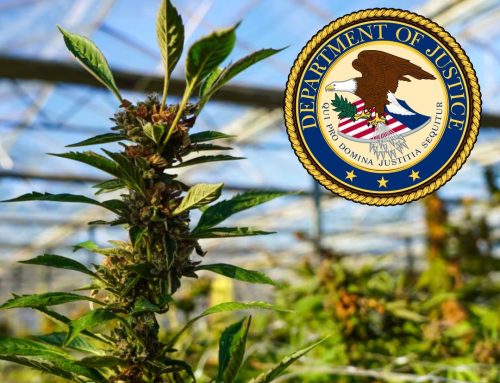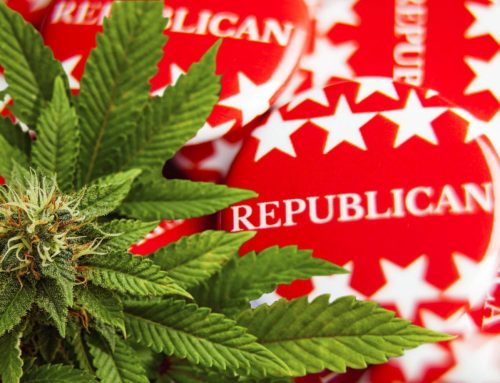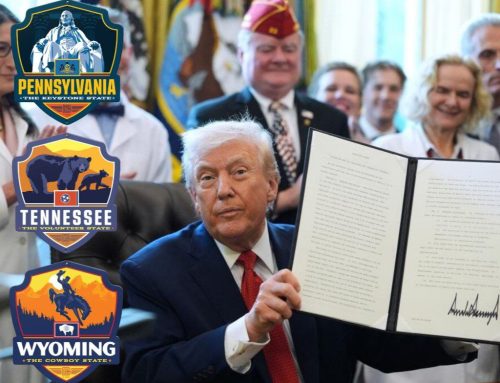Texas Hemp Ban Showdown or Reefer Madness 2.0?
AUSTIN – The Texas Senate Committee on State Affairs ignited a fiery debate on Tuesday, July 22, 2025, during the first hearing of a special legislative session called by Governor Greg Abbott to address the regulation of hemp-derived products.
The committee unanimously advanced Senate Bill 5 (S.B. 5), a near replica of the Senate Bill 3 (S.B. 3), which seeks to ban consumable hemp products containing any detectable amount of THC, except for non-intoxicating CBD and CBG. This move sets the stage for a contentious clash with the Texas House, where support leans toward regulation over prohibition, and reignites tensions with Governor Abbott, who vetoed a similar ban in June.
The hearing, held in the Senate Chambers at the Texas Capitol, underscored deep divisions among lawmakers, industry stakeholders, and the public. S.B. 5, sponsored by Sen. Charles Perry (R-Lubbock), would criminalize the manufacture, distribution, or possession of hemp-derived THC products, imposing third-degree felony charges for production and delivery, and misdemeanor penalties for possession or courier services. Sen. Perry, visibly frustrated, argued that prior attempts at regulation have failed due to lack of enforcement, stating,
“We will regulate it by banning it because we have tried regulation.”
Perry opened the hearing with a barrage of scare tactics, painting the hemp industry as a predatory force targeting children. “In a word, if you get high from the product, it is illegal,” he declared, brandishing a package of hemp edibles and likening them to “sugar-coated poison” peddled by “a horde of vampires.” His vivid imagery, critics argued, was a calculated manipulation to stoke fear, ignoring that Texas law already restricts hemp sales to those 21 and older.
Perry’s claims grew more audacious, asserting that modern hemp products contain up to “80% THC,” a figure he contrasted with “5% THC in the Hippy days.” Experts quickly debunked this, noting that even high-potency cannabis rarely exceeds 30% THC, and hemp-derived products are capped at 0.3% THC under federal law. He further likened hemp to “the new meth,” a comparison law enforcement officials at the hearing did not substantiate. Most strikingly, Perry suggested a link between intoxicating hemp products and the Uvalde school shooting on May 24, 2022, without evidence, a claim critics slammed as exploitative. “It’s a shameful tactic to tie a tragedy to a legal industry for political points,” said cannabis attorney Susan Hays.
Perry also dismissed the economic impact of a ban on Texas’s $4 billion hemp industry. He argued that 2,000 hemp shops could revert to selling tobacco, while the remaining 6,000—mostly gas stations and convenience stores—already deal in non-cannabis products. In a provocative twist, he suggested store owners sue those who “lied” about hemp’s legitimacy, stating,
“To those store owners that bought into this industry with good faith, you have an alternative.
You can go after these people that took your money, in a court of law.”
Industry leaders called this a deflection, arguing it shifts blame from lawmakers to entrepreneurs who complied with state regulations.
Perry further claimed that regulation is futile, citing flourishing black markets in states with legal cannabis. “By the time good actors sign up, pay their fees, and drive up costs, the black market guys stand on the corner for $10 cheaper,” he said. This ignored testimony from retailers who adhere to strict testing and labeling standards. Steve Dye of the Texas Police Chiefs Association bolstered Perry’s stance, arguing that regulating hemp would cost “millions and millions of dollars” and take “decades” to train agents on chemistry and compliance. Critics countered that Dye’s estimates were inflated and that regulation, as proposed by Abbott, is both feasible and cost-effective.
Governor Abbott’s veto of S.B. 3 on June 23, 2025, cited legal concerns, pointing to a then-pending Eighth Circuit Court of Appeals case in Arkansas. Abbott argued that S.B. 3’s blanket ban on any amount of THC risked being struck down as unconstitutional, referencing Arkansas’s 2023 hemp ban, which was stalled by litigation for nearly two years. However, on June 24, 2025, the Eighth Circuit upheld Arkansas’s ban, ruling that the 2018 Farm Bill does not preempt states’ rights to regulate or prohibit hemp products, provided interstate commerce remains unaffected. This decision emboldened prohibition advocates, with Lt. Governor Dan Patrick declaring on X,

Abbott, however, maintains that regulation, not prohibition, is the answer. In his veto statement, he proposed a framework akin to Texas’s alcohol regulations, including age restrictions (21+), child-proof packaging, and strict enforcement to limit THC potency to 3.0 milligrams per serving. His press secretary, Andrew Mahaleris, clarified that Abbott supports banning intoxicating products for minors and dangerous synthetics but favors regulated access for adults. This stance aligns with the Texas hemp industry, veterans, and patients who rely on hemp products for managing chronic pain, PTSD, and other conditions without resorting to opioids.
The hemp industry, valued at over $4 billion annually with more than 8,000 licensed retailers, has mounted a robust defense. The Texas Hemp Business Council celebrated Abbott’s veto, stating on X,

Industry leaders warn that a ban could devastate small businesses, eliminate more than 50,000 jobs, and drive the market underground, potentially empowering illicit trade. Public sentiment echoes this, with 53% of Texas voters opposing a hemp ban, according to recent polls.
The Senate’s push for S.B. 5 faces hurdles in the House, where lawmakers previously favored a regulatory framework before aligning with the Senate’s ban in a last-minute reversal during the regular session. The Texas Constitution limits special sessions to topics designated by the governor, and Abbott’s call emphasizes regulation, not prohibition, raising questions about S.B. 5’s viability. Cannabis attorney Susan Hays praised Abbott’s approach, stating,
“Simplistic, politically driven bills attacking cannabis products will fail in practice every time.”
As the special session unfolds, Texas stands at a crossroads. Will it follow Arkansas’s prohibition path, risking legal and economic fallout, or chart a course for sensible regulation that balances public safety with industry vitality? The answer lies in the coming weeks, as lawmakers, led by a defiant Senate and a pragmatic governor, grapple with the future of hemp in the Lone Star State. One thing is certain: the fight for Texas’s hemp and cannabis is far from over, and its outcome [we think] will ripple across the nation.




































